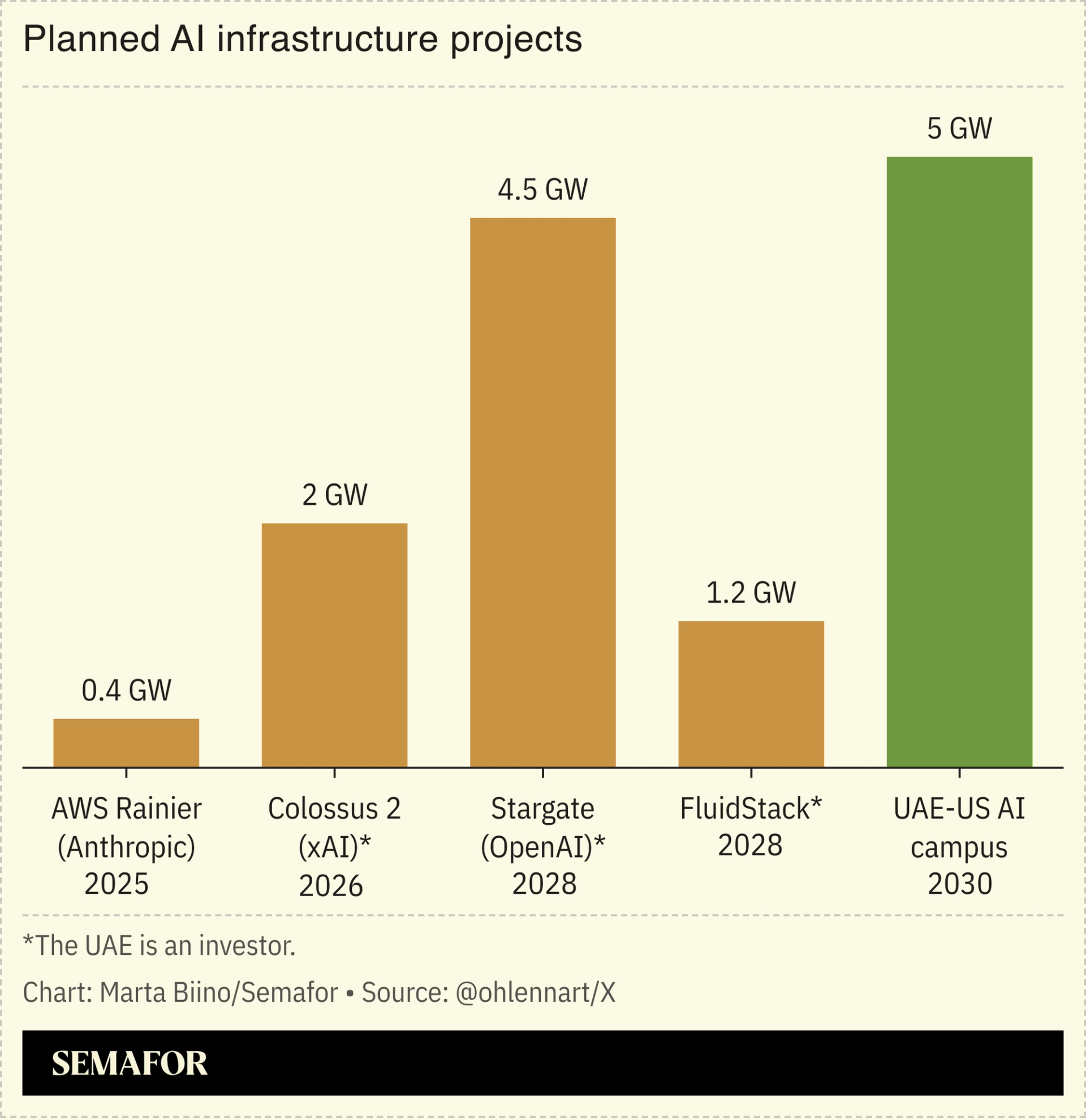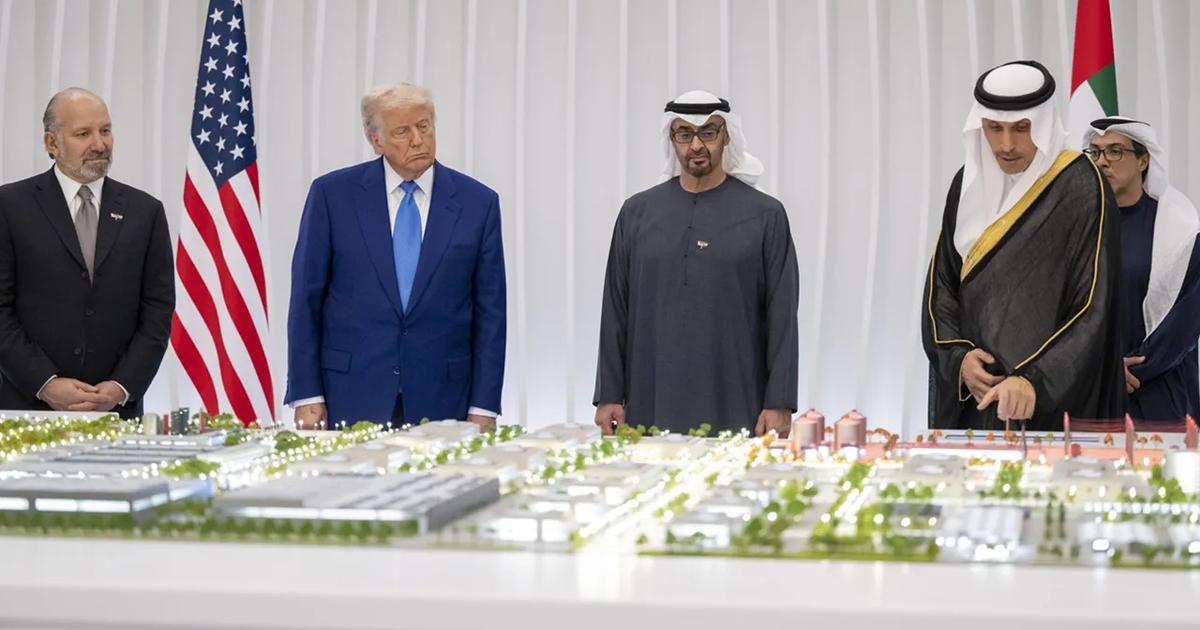Abu Dhabi-backed G42 is still negotiating with major American technology firms — with no agreements yet — to become tenants at the planned UAE–US AI Campus, and aims to diversify chip suppliers beyond Nvidia, a person with direct knowledge of the talks told Semafor.
AWS, Google, Meta, Microsoft, and Elon Musk’s xAI are among those in discussions, with Google the furthest along in negotiations to offtake computing capacity, the person said.
G42 is also looking to US chipmakers AMD, Cerebras Systems — in which G42 holds a stake — and Qualcomm to supply some of the computing capacity at the campus, the person said.
One business case for the new facility — which at five gigawatts is considered the largest artificial intelligence infrastructure project outside the US — is the concept of “digital embassies.” G42 is developing a framework to pitch foreign governments to house their data in the UAE, the person said, as a hedge against natural disasters, cyber crime, and as a lower-cost alternative for countries where energy and land are more expensive.
Know More
The 5-gigawatt (GW) UAE-US AI Campus, announced during US President Donald Trump’s visit to Abu Dhabi in May, aims to help US hyperscalers — so-called because of their capacity to leverage massive amounts of computing power — deliver faster, more reliable service to the roughly 2.9 billion people, a third of the global population, who live within 2,000 miles of the UAE.One GW is already committed: OpenAI, alongside joint partners Abu Dhabi’s MGX, Japan’s Softbank, and Oracle, said shortly after Trump’s visit that the group’s first Stargate data center outside the US would be built there.
The 1-gigawatt project will use Nvidia’s Grace Blackwell GB300 systems, currently the most advanced AI platform Nvidia offers, and be the first phase of the UAE-US AI Campus, rolled out sometime in 2026.
Stargate got much of the attention when the UAE-US AI Campus was announced, but is slated to represent just 20% of the project’s total scope.

Kelsey’s view
G42 faces competition from neighboring Saudi Arabia, where Public Investment Fund-backed HUMAIN aims to build 1.9 GW of capacity by 2030, scaling to 6 GW by 2034. HUMAIN’s CEO told Semafor its existing data centers and those already under construction are sold out.The UAE is going all-in on US-made chips, and it is American customers who will consume and sell that computing power from a G42 facility. Saudi Arabia meanwhile, is heavily reliant on US technology but has kept warmer ties to Chinese firms as well, including a deal with Beijing hardware maker Lenovo to manufacture servers in the kingdom.
Room for Disagreement
Hyperscale AI infrastructure in the Gulf comes amid signs of broader cooling. The rollout of OpenAI’s latest GPT-5 drew mixed reviews, and volatility in tech stocks has prompted questions about demand. Bloomberg Opinion’s Dave Lee wrote last month that while an “AI winter” is not here, “there’s no questioning the sudden chill in the air.”
Abu Dhabi’s G42 eyes chip options beyond Nvidia
The Abu Dhabi-backed AI firm is still courting customers for what could be the world’s largest data center campus outside the US.
